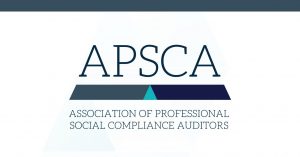Responsible Sourcing
Omega understands that responsible sourcing programs work best when objectives are carefully aligned with the characteristics of your supply chain. Too often responsible sourcing initiatives are deemed ineffective because ambitions are out of step with practicalities. Interactions between product type, countries of origin, budget, business relationships, leverage and supplier sophistication are crucial. These relationships largely determine the potential impact of your program and therefore how it should be designed and managed.
Omega understands these nuances. Our client services team is vastly experienced in designing, managing and servicing responsible sourcing programs from across the entire spectrum; on behalf of many of the most responsible brands in the world through to small domestic importers.
Managing a responsible sourcing program requires both global and local expertise. You may need expertise on the risks of child labor in Myanmar or forced labor in Malaysia, for example, while at the same time having a coherent supplier follow-up policy, across all markets, which is practical and meaningful. You may simply require your suppliers to meet minimum requirements or, alternatively, you may choose to segment your supplier base and drive improvements accordingly.
Supplier Audits
Each year, Omega performs 3,000 responsible sourcing audits globally on behalf of many of the most ethical companies in the United States and Europe. Omega is a member of the Association of Professional Social Compliance Auditors (APSCA). APSCA was created to ensure professionalism, consistency and credibility of individual auditors and organizations performing independent social compliance audits.
Supplier auditing is the cornerstone of any responsible sourcing program. In the developing world, the fundamental challenges of weak local institutions coupled with inadequate factory management systems persist. These combine to create a vacuum of non-enforcement which brands and retailers are required to fill. While there is an important debate over how to best maximize their impact, supplier audits will remain crucial for the foreseeable future. In fact, onsite monitoring has become even more established as recent tragedies, such as Rana Plaza in Bangladesh, and government legislation, such as The California Transparency in Supply Chains and the UK Modern Slavery Acts, have seen more companies adopt robust monitoring programs.
It is crucial though that supplier audits are correctly utilized to have maximum impact. Too often responsible sourcing operates in a silo. A one size fits all approach remains prevalent across many organizations where requirements and expectations are unvaried across thousands of suppliers, regardless of commercial relationships or local conditions. In reality, leverage varies across business partners and companies cannot remediate every issue. It is this misunderstanding which leads to the fatigue so commonplace with the ‘audit model’.
Omega advocates a supply chain monitoring program tailored to the requirements of your business and characteristics of your supply chain. This approach, coupled with a deep understanding of the issues has seen us develop into a leader in our field.
The Social and Labor Convergence Program
The Social and Labor Convergence Program (SLCP) is a milestone initiative established in 2015. A multistakeholder initiative, the SLCP’s objective is to enable apparel brands and retailers to leverage one set of verified social and labor data, reducing duplicate auditing and thereby freeing up resources for remediation and capacity building. The SLCP, now with more than 200 signatories, including many of the largest apparel brands and retailers in the United States, established the Convergence Assessment Framework in 2018 which is now being scaled out across the globe. Omega Compliance is an approved verifier body for the SLCP and looks forward to collaborating on this initiative as it grows. For information on our SLCP services, please contact us.
Migrant Worker Protection
More integrated economies, cheaper transportation links and changing regional dynamics has led to a prevalence of migrant labor across supply chains. This is particularly the case in South East Asia, Taiwan and The Middle East and with it the risk of forced labor conditions. The tale is a familiar one. Workers are recruited by agents in their home country, Cambodia, Nepal or Laos, for example, with the promise of good, well paid manufacturing jobs overseas. Initially paid by the supplier, the myriad of fees associated with their relocation, which may reach $6,500, are deducted from salaries on an ongoing basis forming bonded labor conditions. In addition, factories often withhold migrant worker passports, as a form of security, restricting freedom of movement.
In response to these challenges, there is a movement across advanced economies to legislate against supply chain forced labor, with the U.S and U.K at the forefront. Industry has responded to these challenges with multi-stakeholder initiatives, such as the ‘three pillars’ approach to ethical recruitment, or multi-industry Responsible Labor Initiative (RLI) and new worker voice initiatives, such as The West Principles. Brands themselves are recognizing the limitations of traditional audits in combatting forced labor issues and developing specific tools to address this complex challenge.
Training and Advisory
Brands are increasingly adopting the 3 pillar approach to migrant worker protection: contractual obligations, no retention of worker documentation and a ‘no fees’ policy prohibiting workers from paying fees, associated with their employment, from the point of hire. A ‘no fees’ policy is a bold, ambitious requirement with the overarching principle that workers, hired from a foreign country, are not required to pay the application, recruiting, hiring, placement, processing or training costs associated with their employment.
It’s important to unpack this though. Unless brands clearly specify its details, a ‘no fees’ policy can be problematic. Relocation fees are complex, come in many forms and supplier preparedness to absorb the costs may depend on commercial relationships. Some fees may be acceptable while some will be unacceptable. It is therefore important that brands make this distinction for areas of uncertainty, such as legally mandated health examinations, transportation fees should the migrant worker change employers within the same foreign country, as well as deductions for any government taxes on foreign workers.
Omega helps companies build on their ‘no fees’ statement by developing a definitive migrant worker recruitment policy which is both ethical and clearly communicable to their supply chain partners.
Forced labor is only detected during a social responsibility audit once it is too late. By then forced labor conditions are often embedded in supplier recruitment practices and remediation is often then a long, challenging process. It is imperative then that suppliers, and internal stakeholders, clearly understand the definitions of forced labor, pertaining both local regulations and industry best practices, how to develop ethical recruitment systems and, importantly, how to remediate forced labor incidents should they occur.
Migrant Worker Protection Assessments
A key step in a migrant worker protection program is to understand across which suppliers are workers most vulnerable. Omega helps companies achieve this via specific, migrant worker protection audits upon suppliers located in at risk markets.
These assessments perform a dual purpose; to understand whether migrant workers are present in that factory and, if so, are they subject to employment conditions consistent with forced labor. Many of the techniques employed in these audits are drawn from those utilized by a standard responsible sourcing audit. However, the key difference being that migrant worker protection audits are deeper dive assessments with resources, including multiple translators, dedicated to document reviews, interviews, HR management and worker recruitment systems as they pertain to migrant labor conditions.
Supplier Improvement Programs
Companies may wish to build upon their audit programs by driving further improvements with core suppliers where the opportunity for impact is greatest. In segmenting these core suppliers, factories could be weighted by business volume, commercial relationship, country risk or percentage of production capacity your organization represents. Alongside these considerations, companies should consider the sophistication of these suppliers, at factory level, and also consult with sourcing to determine their viability.
Once suitable suppliers have been identified, deeper dive projects can then be introduced. Examples include supplier-specific health and safety training programs, empowering both factory management and workers to assess onsite risk then implement and monitor their own programs. These are developed with local priorities in mind such as fire and electrical safety in India and Bangladesh suppliers, or machine and chemical safety for furniture factories in Vietnam or Indonesia.
Supplier ownership programs are another option. Traditionally, suppliers take a reactive approach to social compliance: they undergo an audit, are provided with a corrective action plan which they are required to implement within an agreed timeframe. However, under these more comprehensive projects, suppliers are provided with the requisite skills to develop a proactive approach instead. They are provided with the knowledge to develop, implement, monitor a program which is integrated into their operations and one which best fits their profile. They then own and manage their program, in-house, taking ownership of the entire decision making process. While these programs are more resource intensive, with the right engagement, from all partners, they offer an excellent opportunity to drive real and sustained improvements at the core of your supply chain.


